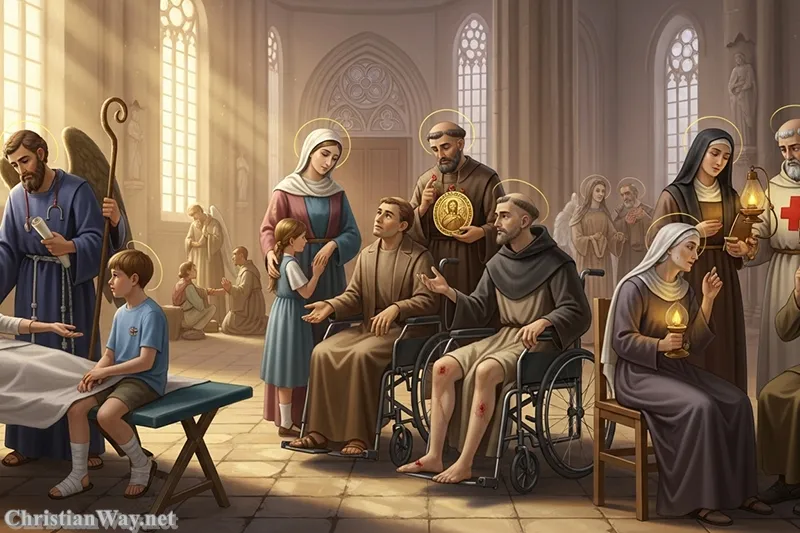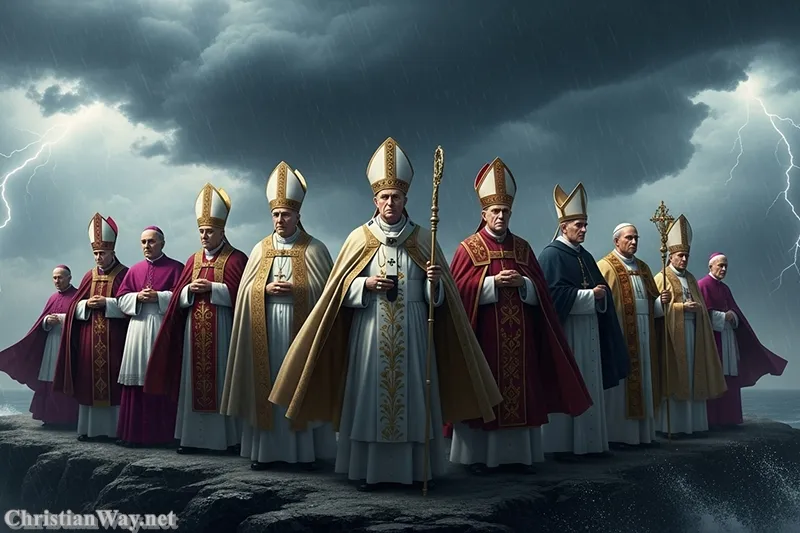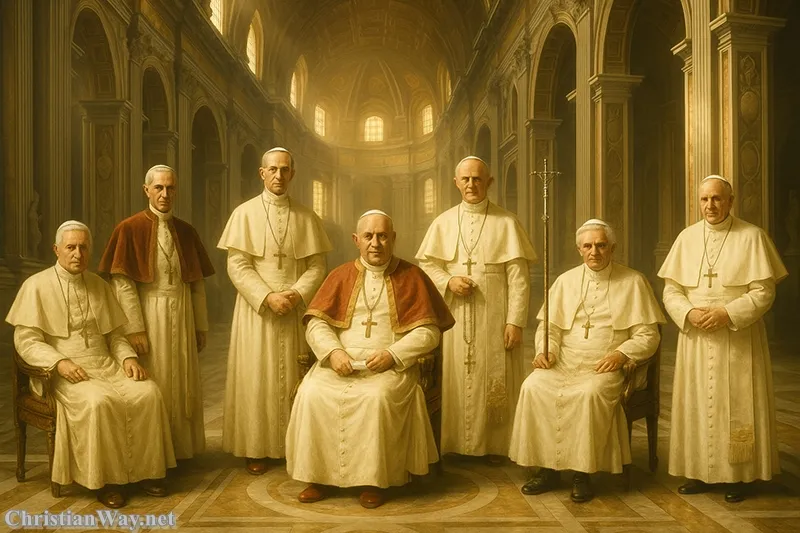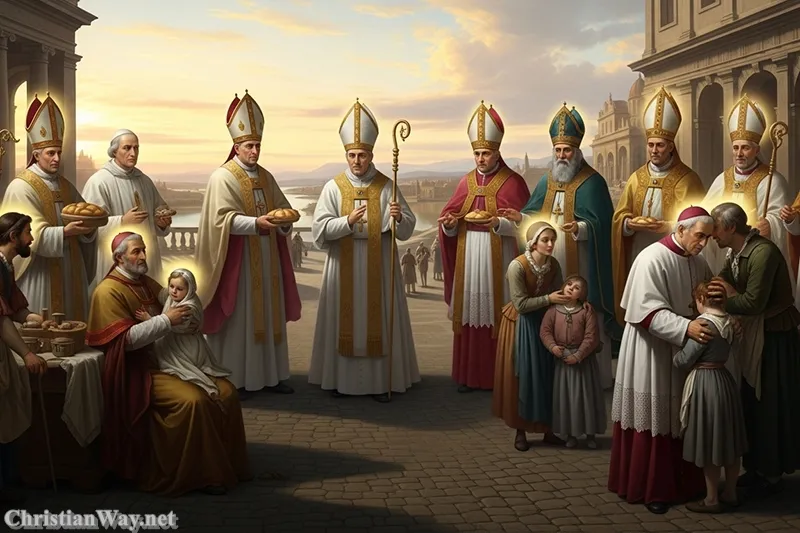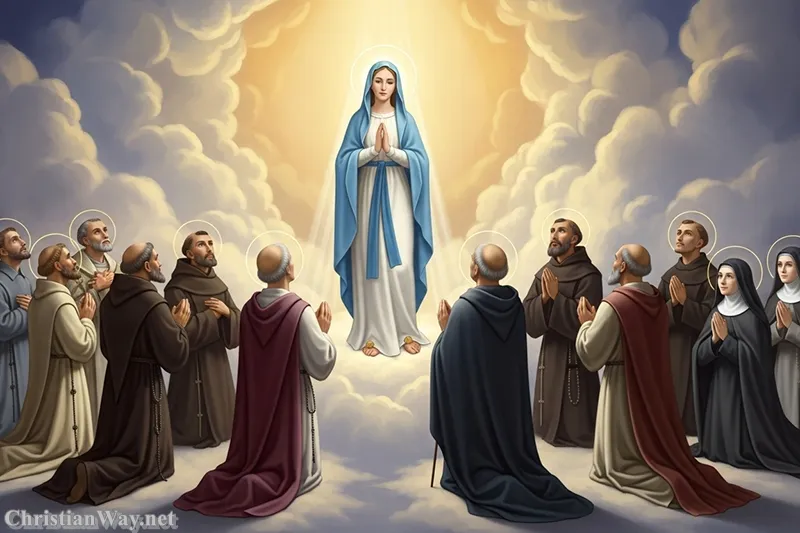Dear friends in Christ,
From the earliest centuries of the Church to our present age, the popes have not only been guardians of doctrine but also bearers of a divine mission — to bring the Good News of Jesus Christ to all peoples. Their call echoes the words of Christ Himself: “Go therefore and make disciples of all nations” (Matthew 28:19).
These missionary popes, each in his own time and way, helped the Gospel take root in distant lands. Some sent forth missionaries across the seas; others opened the Church’s heart to new cultures, speaking the language of compassion and peace. Together, they form a living chain of evangelization — popes whose courage, vision, and holiness have carried Christ’s love to the nations.
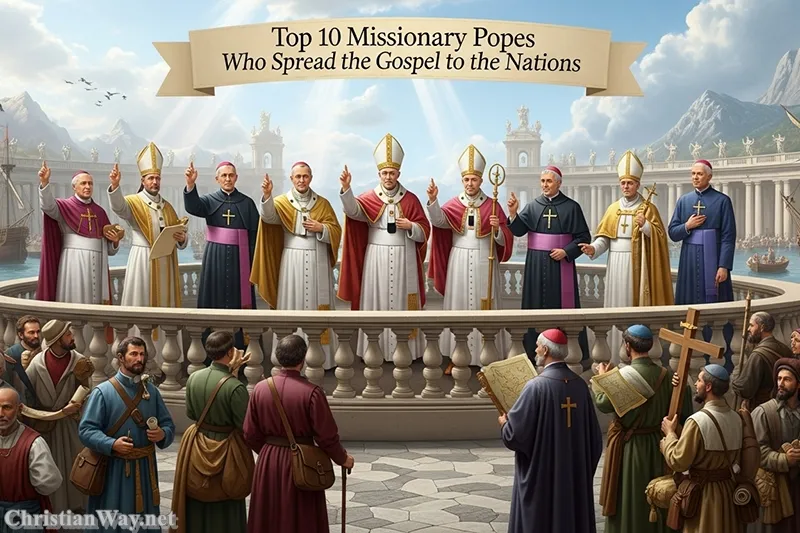
Let us journey through the lives and legacies of these 10 evangelizing popes, who became instruments of God’s universal mission.
1. Pope Saint Gregory the Great (590–604) — The Father of Missionary Popes
Pope Gregory the Great stands among the greatest missionary popes in history. Amid the chaos of post-Roman Europe, he sent missionaries to bring the light of the Gospel to pagan nations. His most famous mission was to England, where he sent Saint Augustine of Canterbury, laying the foundation for English Christianity.
Gregory’s heart burned for souls. In his letters, he encouraged the missionaries to respect local customs that did not contradict the faith — a principle that would later inspire the Church’s approach to inculturation. His leadership marked the Church’s first organized missionary expansion beyond the Roman world.
2. Pope Saint Leo the Great (440–461) — Defender and Proclaimer of the Gospel
Pope Leo the Great was not only a theologian and defender of Christ’s divinity but also a missionary leader in his pastoral vision. His sermons and writings strengthened faith across the empire, while his courage in confronting Attila the Hun became a symbol of faith’s triumph over fear.
Leo understood evangelization as both word and witness — proclaiming truth while embodying the peace of Christ. His papacy showed that missionary work begins at the heart of the Church and radiates outward through example and charity.
3. Pope Saint Nicholas I (858–867) — Mission to the Slavs and Beyond
During the 9th century, Pope Nicholas I supported the great Slavic missions of Saints Cyril and Methodius, who brought Christianity to the peoples of Eastern Europe. Nicholas encouraged them to translate Scripture and the liturgy into local languages — a revolutionary step that affirmed the Church’s universality.
Through his guidance, the Gospel reached the hearts of Slavic nations, paving the way for Christian culture to flourish in lands like Moravia and Bulgaria. Nicholas’ missionary vision showed that the Gospel must be both faithful and accessible, uniting rather than dividing peoples.
4. Pope Pius V (1566–1572) — A Reformer with a Missionary Heart
Though best remembered for reforming the Church after the Council of Trent, Pius V also renewed the missionary spirit of the Catholic world. He strengthened the Congregation for the Propagation of the Faith and supported missions in Asia, Africa, and the Americas.
Under his leadership, missionaries such as the Jesuits, Franciscans, and Dominicans expanded their work among indigenous peoples — especially in India, Japan, and the Philippines. His papacy revived confidence in the Church’s mission: that holiness and evangelization must walk hand in hand.
5. Pope Gregory XV (1621–1623) — Founder of Propaganda Fide
Though his pontificate was short, Gregory XV left an extraordinary legacy by founding the Congregation de Propaganda Fide in 1622 — the central institution responsible for coordinating Catholic missions worldwide.
This made the Church’s missionary efforts more unified and effective, ensuring that evangelization remained a global priority. His successor, Urban VIII, further strengthened this vision, allowing the faith to reach the Americas, Asia, and Africa with renewed vigor.
Gregory XV’s work transformed the papacy into the heart of global evangelization, coordinating thousands of missionaries across continents.
6. Pope Benedict XV (1914–1922) — The Pope of Universal Mission
During the tragedy of World War I, Benedict XV saw the Church’s mission as a light of reconciliation for a suffering world. His 1919 apostolic letter, Maximum Illud, remains a cornerstone of modern missionary thought.
He reminded the Church that missionaries must not be agents of colonial power but servants of Christ and the local people. This was revolutionary — a call for evangelization rooted in respect, humility, and love.
Benedict XV thus became a spiritual father of contemporary mission theology, teaching that the Gospel transcends nationality and political interest.
7. Pope Pius XII (1939–1958) — A Global Shepherd in a Divided World
Amid the turmoil of the 20th century, Pius XII guided a Church facing war and modern challenges. His deep concern for the missions led him to encourage the formation of native clergy and bishops in mission territories, signaling a major step toward the indigenization of the Church.
Under his papacy, countries like China, India, and several African nations saw the consecration of their first local bishops. Pius XII’s vision helped transform the Church from a European-centered institution into a truly global communion of faith.
8. Pope Saint Paul VI (1963–1978) — Evangelization in the Modern World
Paul VI was the first pope to travel widely, becoming a pilgrim of peace and evangelization. His landmark encyclical Evangelii Nuntiandi (1975) remains one of the most profound teachings on missionary work ever written.
He declared: “The Church exists to evangelize.”
Paul VI understood that mission was not just about geography but about hearts — bringing the Gospel to modern humanity, especially amid secularization. His visits to Africa, Asia, and the Americas inspired millions and rekindled missionary zeal across the Church.
9. Pope Saint John Paul II (1978–2005) — The Global Missionary Pope
Few popes embodied the missionary spirit like Saint John Paul II. Traveling to over 120 countries, he became a living icon of the Church’s global outreach. His encyclical Redemptoris Missio (1990) renewed the call for the new evangelization, urging the faithful to bring Christ into modern culture with courage and joy.
John Paul II canonized saints from every continent, emphasizing the universal nature of the Gospel. His charisma, profound theology, and love for youth — expressed through World Youth Day — awakened missionary passion in a generation.
He once said, “Faith is strengthened when it is given to others.” His entire pontificate was a testimony to that truth.
10. Pope Francis (2013–Present) — Missionary of Mercy to the Margins
Continuing the legacy of his predecessors, Pope Francis has called the Church to be a “missionary Church that goes forth.” His apostolic exhortation Evangelii Gaudium (The Joy of the Gospel) redefines evangelization for the 21st century — not as conquest, but as encounter.
Francis reminds us that true mission begins with compassion. He encourages every Christian to become a missionary disciple, bringing the tenderness of God to the poor, the excluded, and the forgotten. His simple gestures — visiting refugees, embracing the sick, speaking for the voiceless — have made him a missionary of love in action.
Through him, the world sees that evangelization is not just a task for the few, but a vocation for all who have met Christ.
The Common Thread: A Church Always in Mission
From Gregory the Great to Francis, one truth endures — the Church is missionary by her very nature. The papacy itself, as the visible sign of unity, has been the beating heart of this mission, sending forth witnesses who preach not by power, but by love.
Each of these evangelizing popes faced unique challenges: paganism, division, war, or secularism. Yet, all shared one vision — that Christ’s name be known and loved in every nation.
Their legacy is not merely historical; it lives on in every missionary, catechist, and Christian who carries the Gospel to new frontiers — whether across oceans or into the digital world.
Reflect and Pray
Dear reader, the missionary spirit that animated these popes is not theirs alone. It is the Spirit of Christ living in His Church today. You, too, are called to be part of that mission — in your family, your work, your community, your words, and your compassion.
Let us remember the words of Saint Paul: “Woe to me if I do not preach the Gospel!” (1 Corinthians 9:16).
May the same fire that burned in the hearts of the missionary popes burn in ours. May we bring the light of Christ to every soul we meet — gently, humbly, joyfully.
“Lord Jesus, make us witnesses of Your love. May our lives proclaim Your Gospel where words cannot reach, and may Your Spirit renew the face of the earth through us.”
— Fr. John Matthew, for Christian Way





